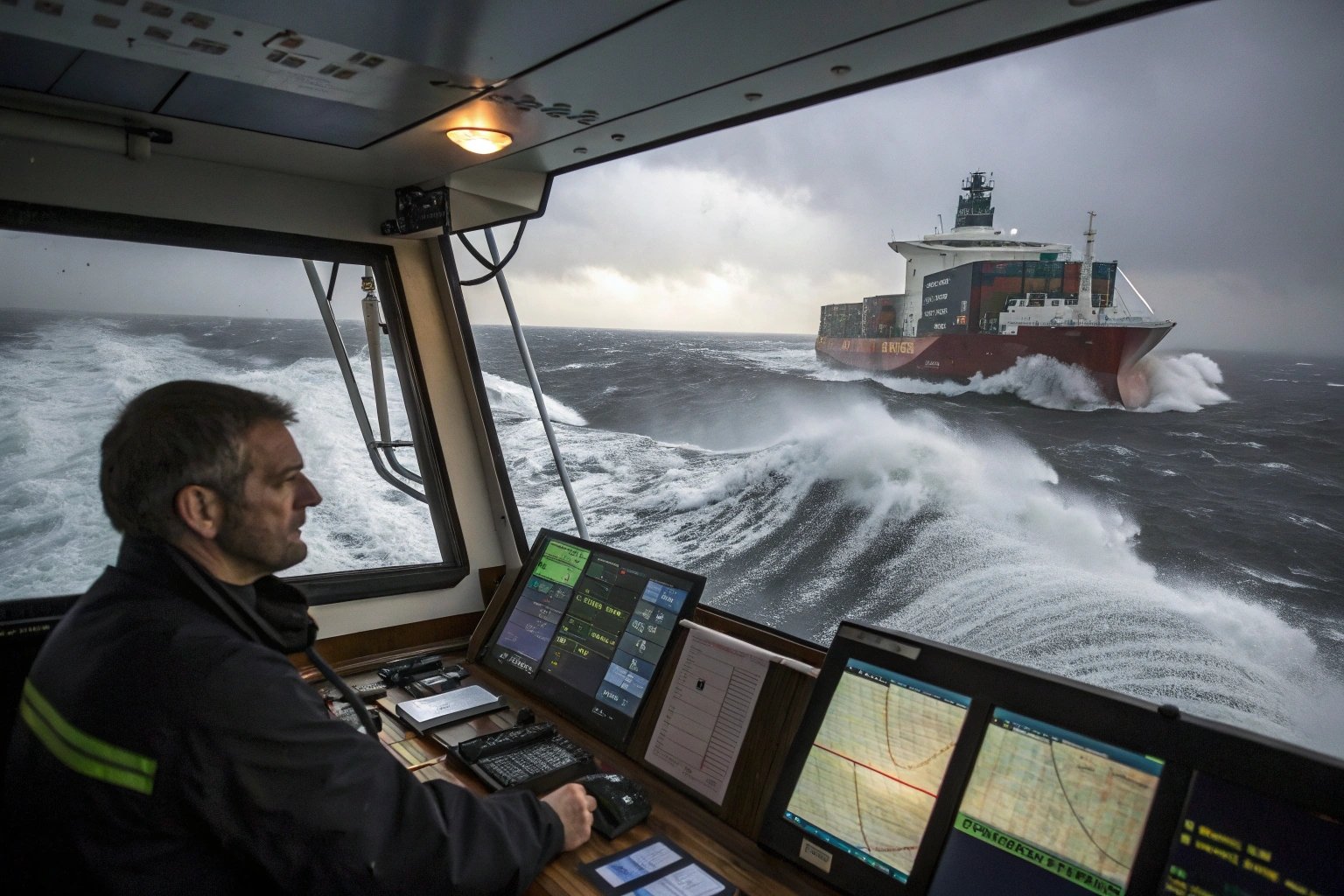Shipping globally sounds exciting—until your cargo gets held at customs, damaged at sea, or delayed for weeks. Every shipment carries some level of risk.
International shipping involves risks such as cargo damage, customs delays, political disruptions, and unpredictable weather. Freight forwarders and insurance can reduce these risks and protect your supply chain.
I’ve seen it firsthand—one storm rerouted a client’s ocean container, delaying delivery by 21 days. That’s why, at GeeseCargo, we build safety nets around every shipment. Risks are real, but they’re manageable when you plan ahead.
Common causes of cargo damage or loss
Ever received a pallet with torn cartons or missing pieces? You’re not alone. Damaged or lost cargo is more common than many importers realize.
Cargo damage often results from poor packaging, rough handling, stacking issues, container leaks, and theft. Losses can occur during loading, transshipment, or delivery.
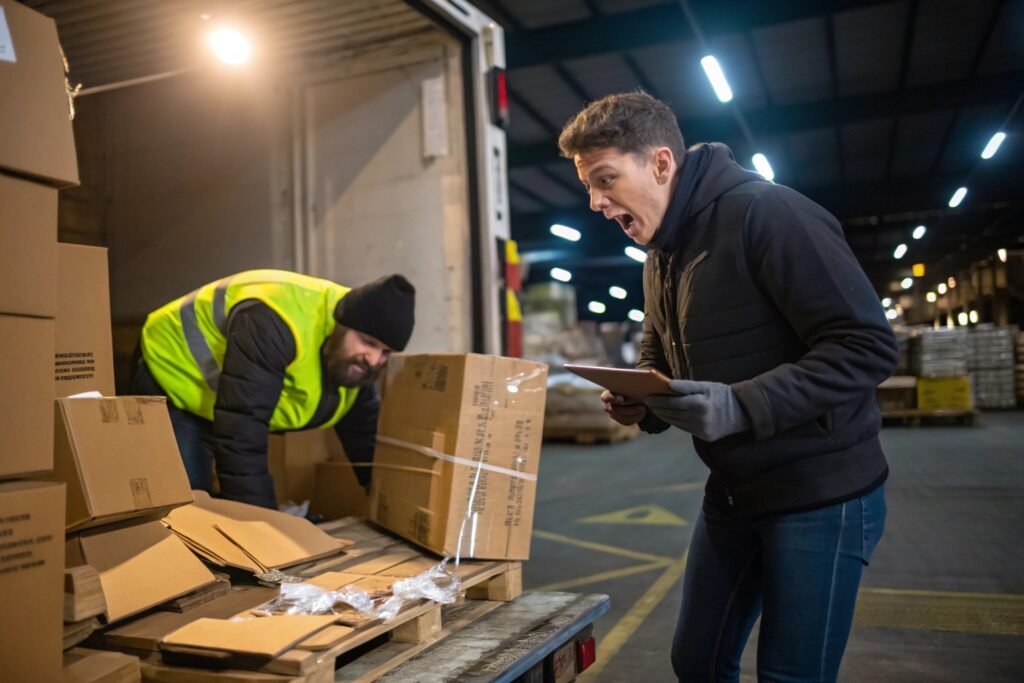
Where does cargo damage typically happen?
Most damage happens at one of three key points:
- At origin: Improper packing or weak pallets break during lifting or stacking.
- During transit: Heavy seas or turbulence cause shifting and collisions inside containers.
- At destination: Forklift mishandling or dropping items during unloading.
In many cases, clients don’t realize the factory used thin cartons or unwrapped the pallets. These shortcuts might save money upfront but can lead to broken merchandise and refund claims.
I had a client shipping ceramics from Jingdezhen. The goods arrived in Los Angeles with cracked edges. We later found out the factory didn’t use internal foam protection. After that, we created a packaging checklist that all our suppliers must follow.
How can forwarders reduce damage or loss?
We take several steps:
| Step | Action Taken |
|---|---|
| Pre-shipment inspection | Ensure proper packing & labeling |
| Load plan optimization | Prevent crushing and overstacking |
| Tamper-proof seals | Applied to all container doors |
| GPS tracking | Monitor container movement in real time |
We also recommend using fumigated wooden pallets, waterproof wrapping, and corner protectors for fragile goods. These small details reduce the risk of transit-related issues dramatically.
How customs delays disrupt global supply chains
Have you ever been told “your shipment is at the port, but we can’t release it yet”? That’s likely due to customs.
Delays at customs can freeze inventory for days or even weeks, causing missed deadlines, canceled orders, and supply chain breakdowns.
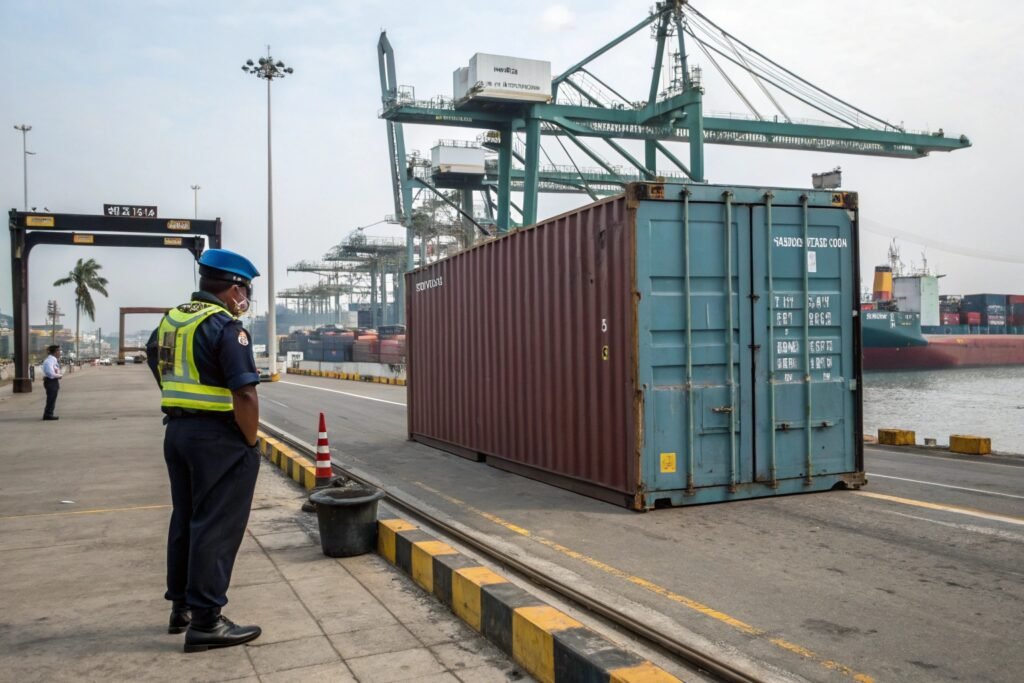
What causes customs delays?
There are several reasons:
- Missing or incorrect paperwork
- Random inspections
- Improper HS codes
- Under-declared values
- Prohibited items or incorrect licenses
For instance, we once had a client shipping polyester garments to the U.S. They used the wrong fiber code, which flagged the shipment. Customs ordered an exam and delayed release by 10 days.
Delays don’t just impact that one order—they ripple across your business:
- Retailers don’t get stock in time
- Cash flow slows because invoices can’t be issued
- Production stalls if incoming materials are delayed
How do forwarders reduce customs risk?
At GeeseCargo, we take a proactive approach:
| Step | Benefit |
|---|---|
| Pre-clearance audits | Fix errors before shipping |
| Bonded warehouse option | Store goods temporarily without fines |
| Advance filing (ISF/AMS) | Speeds up entry processing |
| Licensed broker support | Fast handling of questions or holds |
We also make sure that each shipment has a clear invoice, full description, and aligned HS code. These basics prevent 80% of the most common customs issues.
If a delay does happen, we handle all the communication. You won’t need to chase customs or port officials—we’ve got it covered.
Political and weather risks in cross-border shipping
Think shipping is all about schedules and containers? It’s also about politics and nature.
Unstable governments, labor strikes, sanctions, hurricanes, and port closures all create real threats to international shipping.
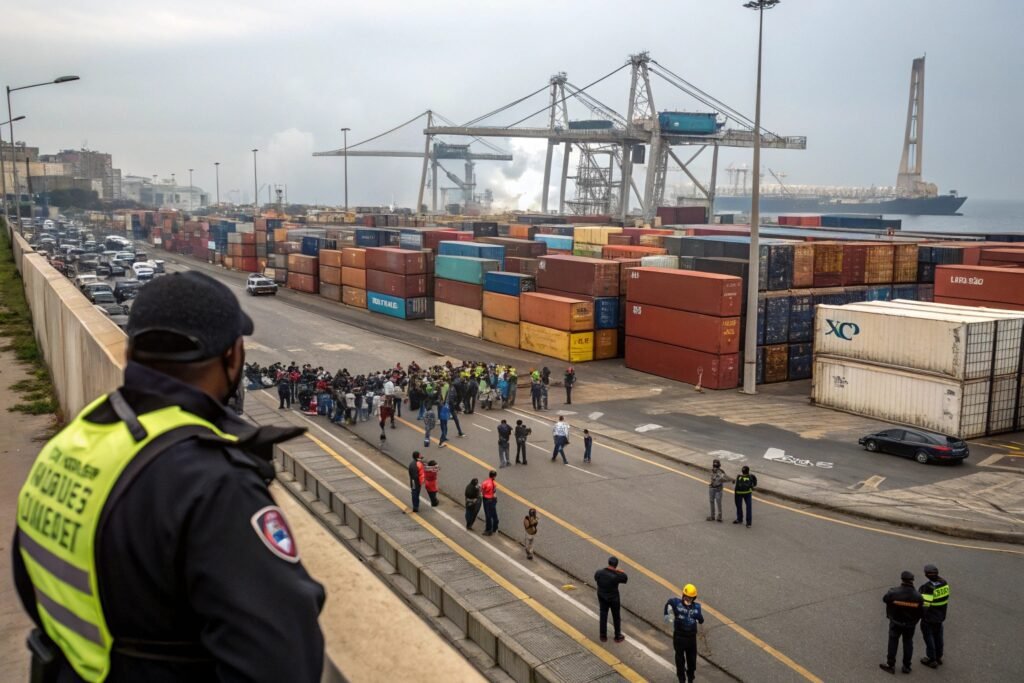
What political risks should importers know about?
Here are some that can affect cargo:
- Strikes at ports or customs offices
- New tariffs or sanctions
- Trade war retaliation measures
- Military conflict or unrest
For example, during the U.S.-China tariff conflict, many importers rushed to get goods in before new rates kicked in. This caused congestion at every U.S. port. Some containers sat idle for weeks.
We helped clients reroute shipments through Canada or Mexico, depending on the product and urgency.
Here’s how we track political risks:
| Risk Type | Response Plan |
|---|---|
| Tariff announcement | Pre-alert clients and re-quote if needed |
| Port strike | Reroute through nearby alternatives |
| Policy changes | Adjust trade terms and shipping timelines |
What weather events affect shipping?
Weather is one of the least controllable variables in logistics. It can cause:
- Port closures (due to typhoons or hurricanes)
- Flooded roads (affecting inland delivery)
- Low visibility (delaying vessel departure or landing)
I remember a shipment stuck in Manila due to typhoon alerts. The port shut for 4 days, then backlog handling took another 3. We had to update the client daily, adjust warehouse staffing, and rebook local trucks.
We always build a 5-day buffer into ocean transit timelines—just in case.
Mitigating risks with insurance and forwarder support
What happens if something goes wrong? That’s when you realize the true value of insurance and a reliable freight partner.
Cargo insurance and experienced forwarders are your best protection against loss, damage, delay, or legal fines in global shipping.
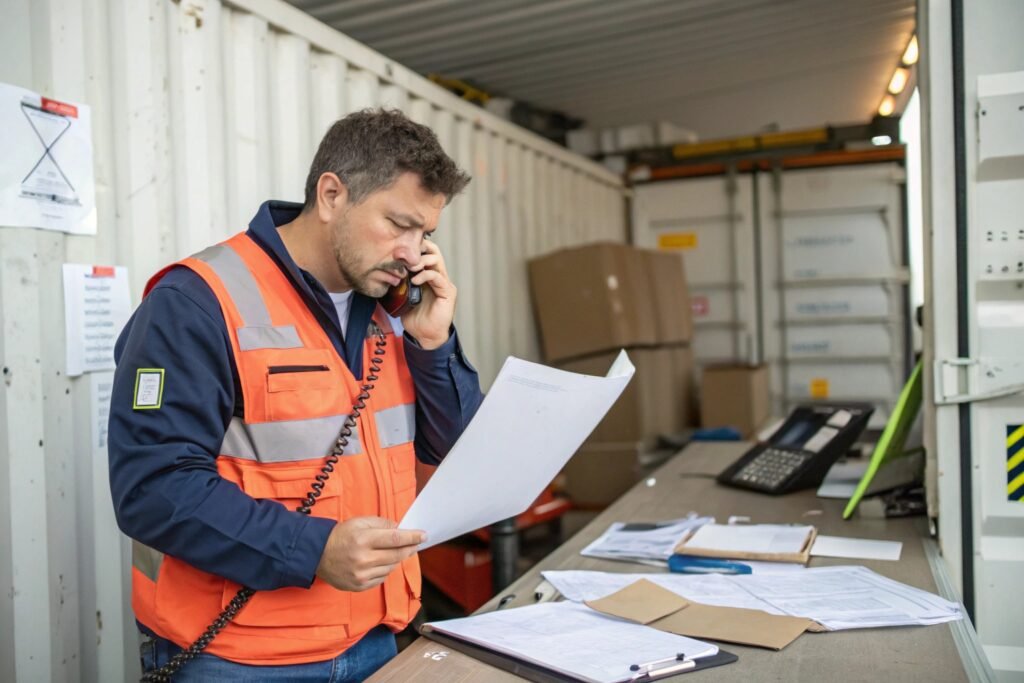
What types of insurance should importers consider?
There are a few options:
| Insurance Type | What It Covers |
|---|---|
| All-Risk Coverage | Full loss/damage during transit |
| Named Peril Coverage | Only listed events (e.g. fire, storm) |
| General Average | Shared loss in emergencies at sea |
We always recommend all-risk insurance for high-value or fragile shipments. It’s not expensive and covers most scenarios, from theft to accidental container drop.
In one case, a client’s high-end handbags were water-damaged due to a leak in the container. The insurance paid the full invoice value—without them needing to battle carriers or ports.
What risk support does GeeseCargo provide?
Besides insurance, we:
- Pre-screen suppliers to make sure they use proper packaging
- Check weather and political alerts before confirming routes
- Offer bonded storage to avoid fines during customs issues
- Assign dedicated account managers to respond in real-time
When something goes wrong, we act fast. You won’t be stuck in email chains or wait days for an answer. You’ll get updates, solutions, and support—because we treat your cargo like our own.
Conclusion
International shipping comes with real risks—from cargo damage to political disruption. But with insurance and a forwarder who knows the game, those risks become manageable—and your business keeps moving.
